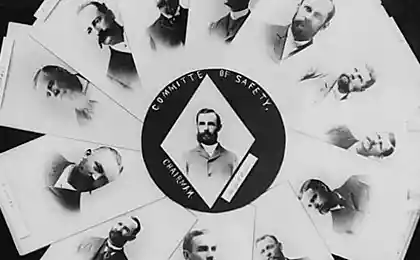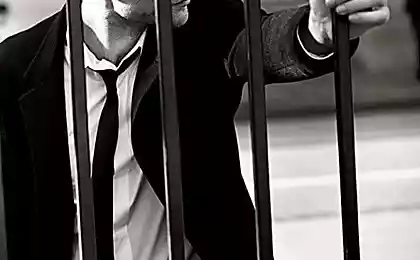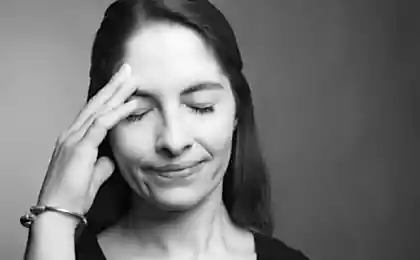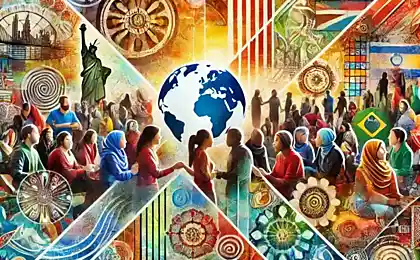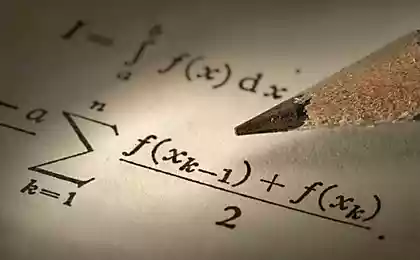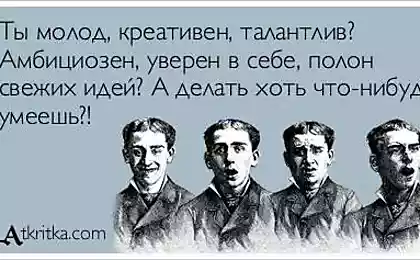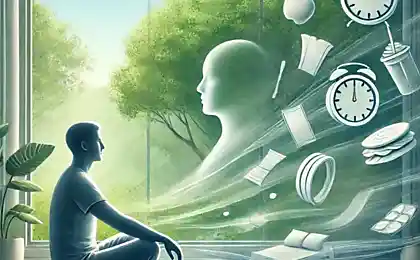601
3 facts about why people need justice
You probably know the expression "altruism - the highest degree of selfishness." Before foaming at the mouth to prove the opposite, read the opinions of uchёnyh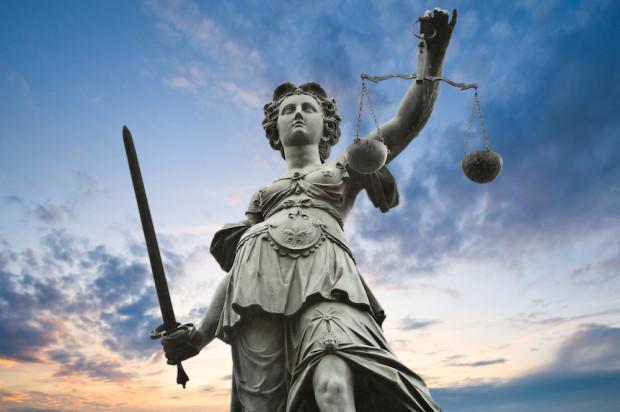
The latest scientific research shows that the tendency of people to an honest and decent deystviyam- not the result of education, it is present even in children who do not understand that their actions can be called a true and fair. Moreover, there was still a sense of justice for our ancestors - the primates and some other mammals. Striving for equality between the members of a social group is due not so much decency and kindness, many people care about themselves - because a stable and peaceful environment in the society is beneficial to each individual belonging to it.
1. Honesty - natural svoystvo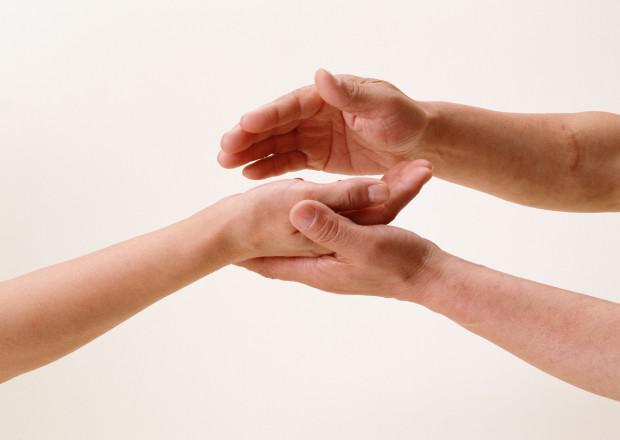
According to the hypothesis of evolution, Darwin put forward, people's behavior should be aimed at improving the adaptability of species to the conditions and the environment and as a result - the survival of the maximum number of related individuals. That is, a person needs to care only about their own interests and the distribution of wealth between his relatives, since it contributes to the successful reproduction of offspring, carriers of his set of genes. Nevertheless, for example, children, sharing a treat with all bandmates kindergarten, operate to the detriment of themselves and in a way contradicting their evolutionary interest.
It is interesting that the natural tendency of children to justice, their aversion to inequality and commitment to the principles of egalitarianism (the idea that all members of society should have equal opportunities) often interfere with parents, forcing the child to behave honestly and fairly and severely punish him for disobedience. The paradox is explained by the fact that a person is much easier to follow their own desires, rather than the rules imposed from outside. In response to the "integrity training" the child begins to act contrary to the instructions of the parent, although a sense of fairness and responsiveness in it inherently very nature.
Man has always been and will be a part of society, so prosocial behavior for him naturally, regardless of whether it improves survival of its offspring or not. This is evidenced by the fact that the children are trying to avoid inequalities among their own kind, not knowing about the "propriety", that in a society such acts are considered to be "right».
2. Cooperation contributes ravenstvu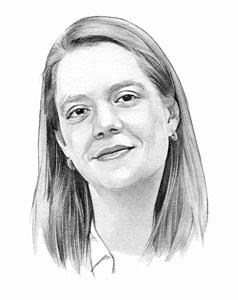
In the latest issue of the journal «Science» published findings Sarah Brosnan of Georgia State University and Frans de Waal, a member of the Emory University (Atlanta, USA). In its work, experts have tried to figure out how in the course of evolution has changed the perception of justice and injustice. Brosnan and de Waal analyze a large amount of data on the reactions of the people and animals on the remuneration for different tasks - in some cases, the subjects received a greater reward than the rest of the experiments for the successful implementation of the same task, but in others they obdelyali giving lower fee . Participants in the experiment became primates, canines, poultry and fish.
It was found that most obviously outrage unprofitable inequitable distribution of rewards (say, when others received more pieces of banana) is displayed by representatives of the species, within which there is co-operation between individuals, are not in a relationship and marriage - these include, for example, humans, chimpanzees, capuchins (genus of monkeys) and some dogs. At the same time, such as dissatisfaction with low injustice occurs in animals is much more rare - scientists have noticed that only humans and chimpanzees are uncomfortable if they gets bigger rewards than other members of their species, accomplish the same task.
3. Justice vygodna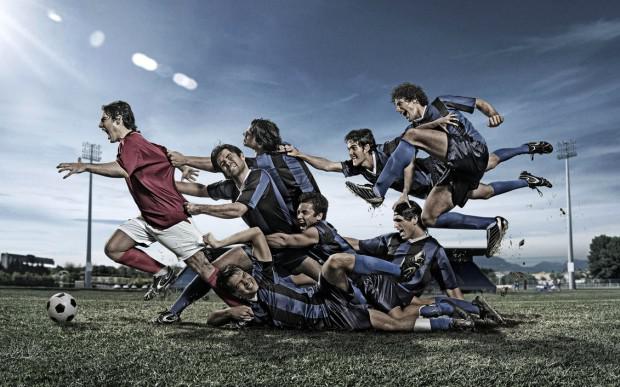
Sarah Brosnan and Frans de Waal suggests that the pursuit of justice, even to the detriment of themselves can be attributed to efforts to prevent dissatisfaction with other members of the social group and thus avoid possible negative effects, the main of which - the cessation of conflicts and cooperation. Loss of reputation for honesty and fair society member reduces the chances of future mutually beneficial partnership, so that the opinion of Sarah and France, when a person adheres to the notorious «fair play» (eng. "Fair game"), he does not do it for the sake of justice, as such, and for the potential benefits.
Since the negative reaction to the favorable injustice occurs only in Homo sapiens and their closest genetic relatives of Pan troglodytes (chimpanzee vulgare), Sarah Brosnan and Frans de Waal we hypothesized that this feature has become one of the most important milestones in the evolution of the sense of justice in primates and eventually It has led to a heightened perception of justice among the people.
Every day, people perform heroic deeds and selfless - strangers rescued from mortal danger, sacrifice huge amounts of money to charity, or for example, become donors, inspiring and delighting the other members of society. It may sound blasphemous, but it is likely that the characters act according to their own interests, even if they do not realize it - thus improving their reputation and increase the chances of co-operation with others - a phenomenon known as indirect reciprocity. Examples of prosocial behavior beneficial to society, pushing people to commit selfless acts.
via factroom.ru

The latest scientific research shows that the tendency of people to an honest and decent deystviyam- not the result of education, it is present even in children who do not understand that their actions can be called a true and fair. Moreover, there was still a sense of justice for our ancestors - the primates and some other mammals. Striving for equality between the members of a social group is due not so much decency and kindness, many people care about themselves - because a stable and peaceful environment in the society is beneficial to each individual belonging to it.
1. Honesty - natural svoystvo

According to the hypothesis of evolution, Darwin put forward, people's behavior should be aimed at improving the adaptability of species to the conditions and the environment and as a result - the survival of the maximum number of related individuals. That is, a person needs to care only about their own interests and the distribution of wealth between his relatives, since it contributes to the successful reproduction of offspring, carriers of his set of genes. Nevertheless, for example, children, sharing a treat with all bandmates kindergarten, operate to the detriment of themselves and in a way contradicting their evolutionary interest.
It is interesting that the natural tendency of children to justice, their aversion to inequality and commitment to the principles of egalitarianism (the idea that all members of society should have equal opportunities) often interfere with parents, forcing the child to behave honestly and fairly and severely punish him for disobedience. The paradox is explained by the fact that a person is much easier to follow their own desires, rather than the rules imposed from outside. In response to the "integrity training" the child begins to act contrary to the instructions of the parent, although a sense of fairness and responsiveness in it inherently very nature.
Man has always been and will be a part of society, so prosocial behavior for him naturally, regardless of whether it improves survival of its offspring or not. This is evidenced by the fact that the children are trying to avoid inequalities among their own kind, not knowing about the "propriety", that in a society such acts are considered to be "right».
2. Cooperation contributes ravenstvu

In the latest issue of the journal «Science» published findings Sarah Brosnan of Georgia State University and Frans de Waal, a member of the Emory University (Atlanta, USA). In its work, experts have tried to figure out how in the course of evolution has changed the perception of justice and injustice. Brosnan and de Waal analyze a large amount of data on the reactions of the people and animals on the remuneration for different tasks - in some cases, the subjects received a greater reward than the rest of the experiments for the successful implementation of the same task, but in others they obdelyali giving lower fee . Participants in the experiment became primates, canines, poultry and fish.
It was found that most obviously outrage unprofitable inequitable distribution of rewards (say, when others received more pieces of banana) is displayed by representatives of the species, within which there is co-operation between individuals, are not in a relationship and marriage - these include, for example, humans, chimpanzees, capuchins (genus of monkeys) and some dogs. At the same time, such as dissatisfaction with low injustice occurs in animals is much more rare - scientists have noticed that only humans and chimpanzees are uncomfortable if they gets bigger rewards than other members of their species, accomplish the same task.
3. Justice vygodna

Sarah Brosnan and Frans de Waal suggests that the pursuit of justice, even to the detriment of themselves can be attributed to efforts to prevent dissatisfaction with other members of the social group and thus avoid possible negative effects, the main of which - the cessation of conflicts and cooperation. Loss of reputation for honesty and fair society member reduces the chances of future mutually beneficial partnership, so that the opinion of Sarah and France, when a person adheres to the notorious «fair play» (eng. "Fair game"), he does not do it for the sake of justice, as such, and for the potential benefits.
Since the negative reaction to the favorable injustice occurs only in Homo sapiens and their closest genetic relatives of Pan troglodytes (chimpanzee vulgare), Sarah Brosnan and Frans de Waal we hypothesized that this feature has become one of the most important milestones in the evolution of the sense of justice in primates and eventually It has led to a heightened perception of justice among the people.
Every day, people perform heroic deeds and selfless - strangers rescued from mortal danger, sacrifice huge amounts of money to charity, or for example, become donors, inspiring and delighting the other members of society. It may sound blasphemous, but it is likely that the characters act according to their own interests, even if they do not realize it - thus improving their reputation and increase the chances of co-operation with others - a phenomenon known as indirect reciprocity. Examples of prosocial behavior beneficial to society, pushing people to commit selfless acts.
via factroom.ru


